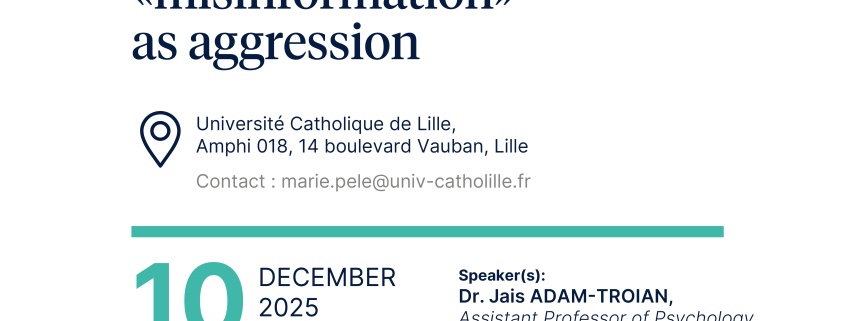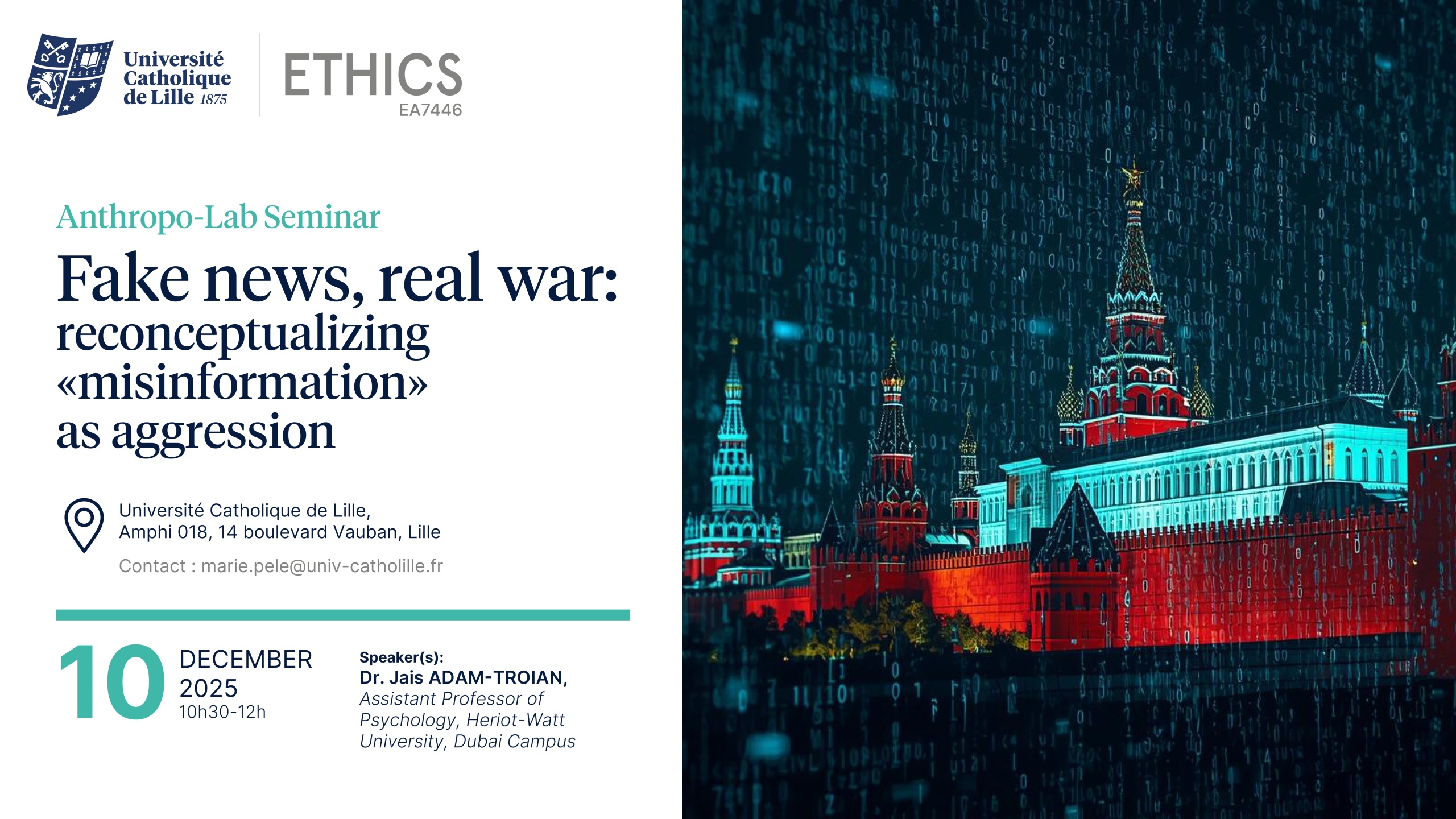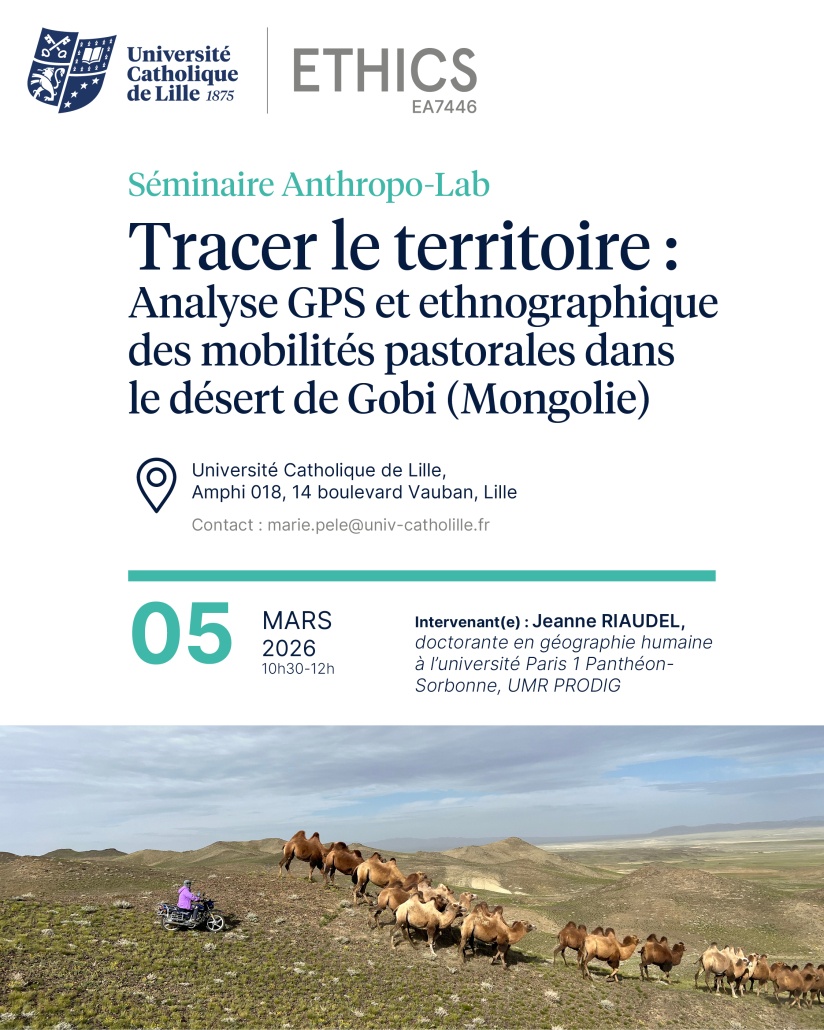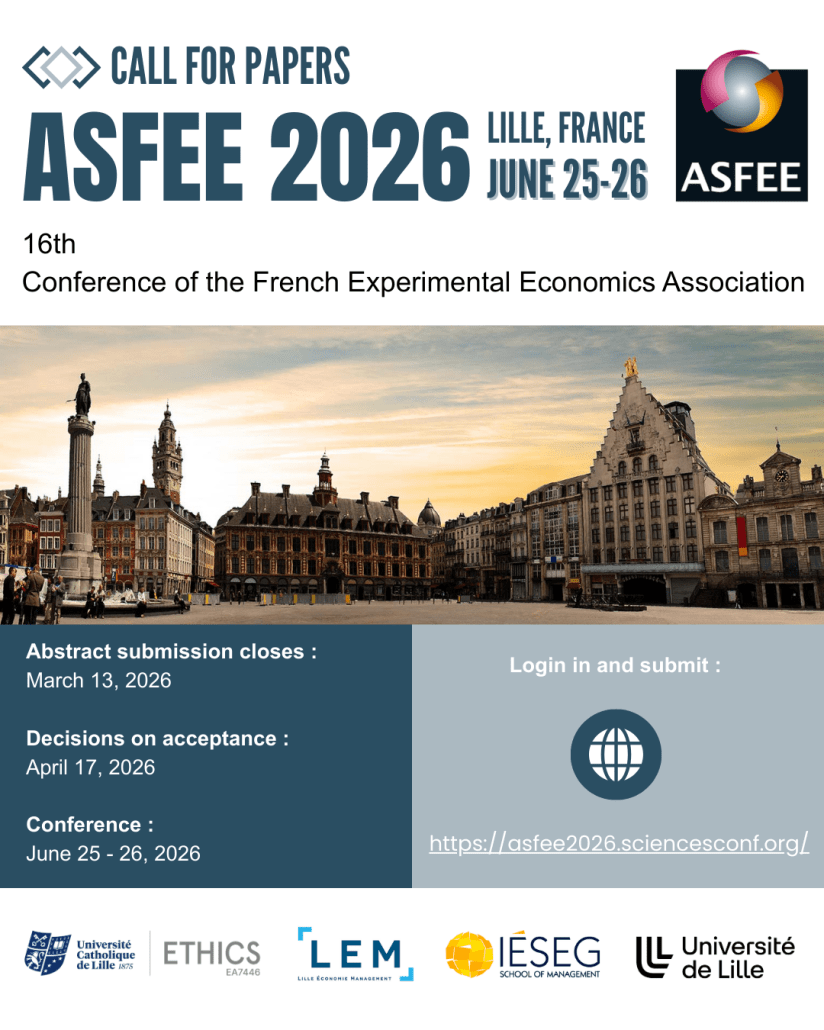

Contact et inscription : marie.pele@univ-catholille.fr
SUMMARY OF YOUR PRESENTATION
Misinformation has become a core issue for social and political psychologists over the past decade. So far, misinformation has been mostly studied under the lenses of a “cognitive paradigm”, focusing on the vulnerabilities of those who believe it and proposing interventions targeted at the individual-level. While this paradigm has been useful, its limitations in terms of applied effectiveness call for the emergence of complementary perspectives. Here, I will make the case for reconceptualizing misinformation as aggression – and more specifically as “relational” (i.e. indirect) aggression. To do so, I will argue 1) that most of what is called misinformation is, in fact, disinformation 2) that disinformation is strategic, intentional, form of behavior aimed to 3) sow division, undermine trust and mobilize action toward designated targets. This shift in perspective moves the focus away from targets to actors (i.e. propagandists and their followers). I will then discuss the implications of this shift for socialpolitical psychological research and practice. Jais Adam-Troian is an Assistant Professor of Social Psychology at Heriot-Watt University Dubai and a visiting professor at the Kyiv School of Economics. His work investigates why people believe in radical ideologies, conspiracy theories and disinformation as well as the effectiveness of interventions to change these beliefs.
BIOGRAPHY
 Jais Adam-Troian is an Assistant Professor of Social Psychology at Heriot-Watt University Dubai and a visiting professor at the Kyiv School of Economics. His work investigates why people believe in radical ideologies, conspiracy theories and disinformation as well as the effectiveness of interventions to change these beliefs.
Jais Adam-Troian is an Assistant Professor of Social Psychology at Heriot-Watt University Dubai and a visiting professor at the Kyiv School of Economics. His work investigates why people believe in radical ideologies, conspiracy theories and disinformation as well as the effectiveness of interventions to change these beliefs.



